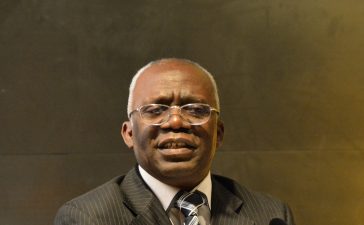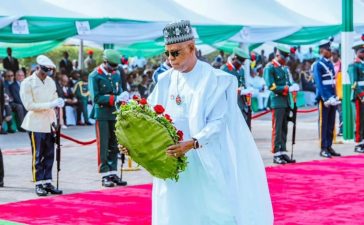Business owners in Nigeria are expressing increased optimism about the economic conditions for the remainder of 2024, according to the latest Business Expectations report released by the Central Bank of Nigeria (CBN). The report, published on Wednesday, indicates a positive shift in business sentiment, driven by anticipated improvements in key sectors such as mining, agriculture, and manufacturing.
Despite ongoing economic challenges, the CBN’s report shows that business owners are expecting a better operating environment in August 2024, with an optimism index of 7.6 points. This upward trend is expected to continue over the next three and six months, with optimism indices projected at 19.3 and 30.7 points, respectively. These figures suggest that businesses are preparing for a more favorable economic landscape as the year progresses.
The report highlights that the optimism is largely based on expectations of improvements in the macroeconomic environment, driven by sectors that have shown resilience in the face of adversity. Specifically, the mining, quarrying, electricity, gas, and water supply sectors are seen as the primary drivers of this positive outlook, with an optimism index of 35.3 points. The agriculture sector follows with an index of 9.9 points, while market services, manufacturing, and non-market services contribute 7.8, 6.3, and 4.8 points, respectively.
Sectoral Insights: Key Drivers of Economic Confidence
The mining and quarrying sector, buoyed by increasing global demand for raw materials and ongoing investments in Nigeria’s mineral resources, is expected to play a significant role in the anticipated economic recovery. Additionally, the energy sector, encompassing electricity, gas, and water supply, is poised to benefit from recent government initiatives aimed at improving infrastructure and service delivery, further boosting business confidence.
Agriculture, a cornerstone of Nigeria’s economy, continues to attract optimism due to sustained efforts to enhance productivity, improve supply chains, and expand access to international markets. The manufacturing sector, despite facing challenges such as inflation and supply chain disruptions, is also expected to see gradual recovery, driven by increased local production and demand.
Market services, which include retail, hospitality, and financial services, are projected to experience steady growth, supported by the ongoing digital transformation and a rebound in consumer spending. Meanwhile, non-market services, which cover public administration, education, and health services, are anticipated to contribute positively to the overall business sentiment as the government continues to invest in social infrastructure.
Implications for Policy and Economic Planning
The CBN’s Business Expectations report provides valuable insights for policymakers and economic planners, highlighting the sectors that are likely to drive growth in the coming months. The growing optimism among business owners suggests that recent government policies and reforms are beginning to have a positive impact, albeit gradually.
However, the report also underscores the need for sustained efforts to address structural challenges in the economy, such as inadequate infrastructure, high inflation, and foreign exchange volatility. The CBN and other stakeholders will need to continue working collaboratively to create a conducive environment for businesses to thrive, ensuring that the optimism expressed by business owners translates into tangible economic growth.
Looking Ahead: A Cautious Optimism
While the rising optimism among business owners is a positive sign, it is accompanied by caution as uncertainties remain. The global economic environment, fluctuating oil prices, and domestic challenges such as security concerns and inflationary pressures could still pose risks to Nigeria’s economic recovery.
Nevertheless, the CBN’s report indicates that businesses are preparing to navigate these challenges, with a focus on leveraging opportunities in key sectors. If the anticipated improvements in the business environment materialize, Nigeria could see a more robust economic performance in the latter half of 2024, setting the stage for sustained growth in the years to come.







